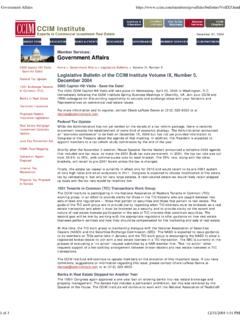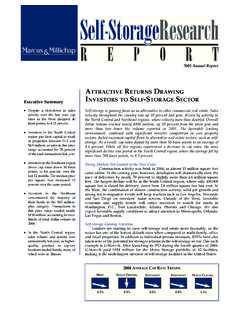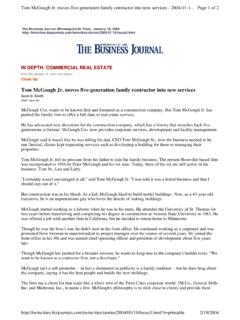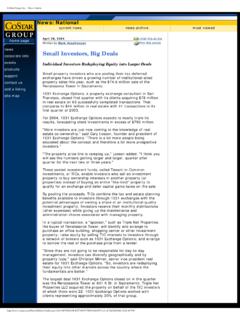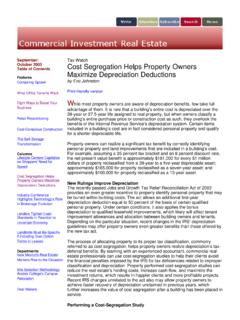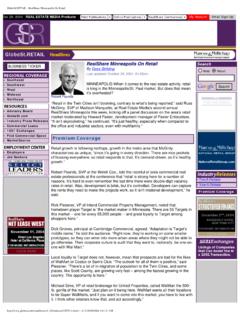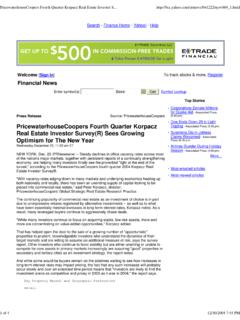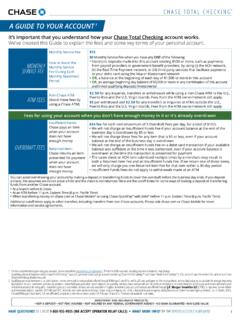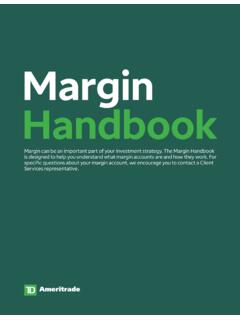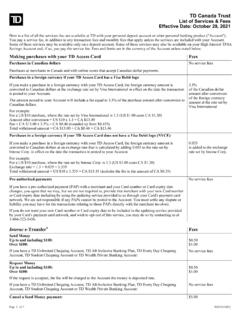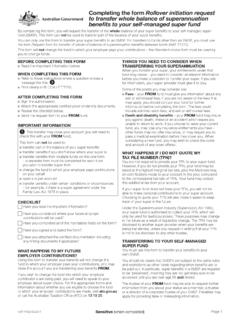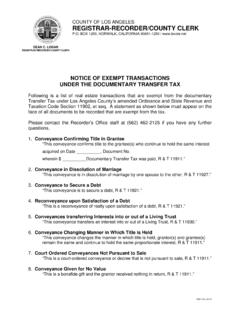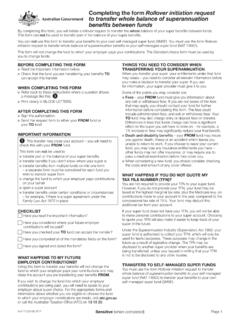Transcription of Everyone into the Pool - Upland
1 Everyone into the Pool Tenancy-in-common funds let you defer capital gains taxes May, 2003 Ames Stevenson was looking to lighten his workload, take advantage of rising real estate prices, and diversify when he put one of his three farms, a 600-acre tract in northwest Iowa, on the block last year. But there was a problem: Stevenson, 52, of Mendota, Ill., was facing a six-figure tax bill as a result of the sale. That's when a real estate broker told him about tenancy-in-common funds. They allow investors to pool their money and buy property together while deferring capital-gains taxes on previous investments. Stevenson rolled over his $ million in sale proceeds into one of these funds, and today, he is one of eight owners of an 88,000-square-foot office building in Davenport, Iowa, that's under long-term lease to an insurance company. The property is managed by Inland Real Estate Group, an Oak Brook (Ill.)
2 Firm that assembled the investor group. Stevenson gets his share of the rent every month, which he says amounts to an 8% annual return on his investment. "It's a lot better than farming," he says. "You're not beating your head against the wall." A TITLE IN YOUR NAME. Tenancy-in-common funds will acquire $3 billion worth of real estate this year, three times as much as in 2002, according to Cary Losson, founder of 1031 Exchange Options, a Lafayette (Calif.) broker. The deals come in many forms, but a typical one works like this: A promoter, such as Inland, Wells Real Estate Funds in Norcross, Ga., or Triple Net Properties in Santa Ana, Calif., will identify an office building or shopping center to buy, round up investors to provide the equity, and arrange to borrow the rest of the purchase price from a bank. The promoter can take fees up front for arranging the transaction and an ongoing sum for managing the property, usually around 6% of the rent.
3 Investors will either put new money into the fund or transfer the proceeds of a previous property sale, which allows them to defer capital gains. The legal and tax rules surrounding such funds have been in place for decades. Investors get the capital-gains tax break if money is placed in a similar investment through what's called a 1031 exchange. Such exchanges are used most often by landlords transferring proceeds from one wholly owned property to another. Tax laws prohibit exchanges into partnerships where investors own properties indirectly and yield to decisions made by the general partner. But tenancy-in-common ownership gives investors direct title and requires their unanimous approval in major decisions, qualifiying them for a tax-deferred exchange, says Stephen Owen, a tax attorney in the Baltimore office of Piper Rudnick. KNOW YOUR PROMOTER.
4 Liquidity is the biggest issue with tenancy-in-common funds. Right now, there's no active secondary market; either the whole property gets sold or you must get a broker to unload your share. Another consideration: As private partnerships, they're lightly regulated by the Securities & Exchange Commission. But if you're comfortable with the fees and track record of the promoter, these funds are a handy way to shelter real estate profits. By Christopher Palmeri
